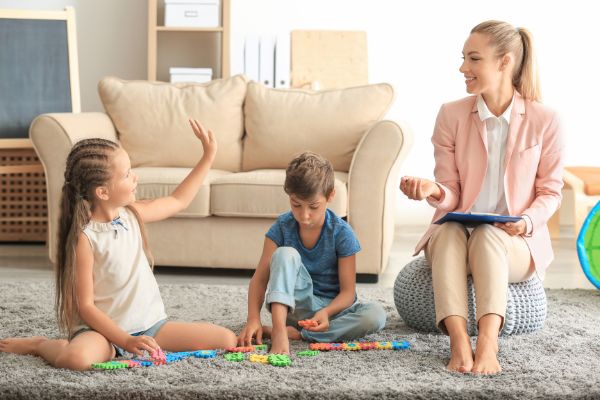Do Counselors Meet with Kids Alone? Therapy is about disclosing personal thoughts, behavior, feelings, and experiences. For optimal results, the person has to be assured the information is confidential and won’t be released to third parties. The session keeps no judgment of the situation or scenario. Therapy is about being exposed and remaining vulnerable to achieve a strong therapeutic alliance to aid healing.
However, kids are given little privacy in therapy. Generally, parents are to escort their kids to therapy each time. But some therapists may allow the parent on first visits to understand their concerns. You can be sure the therapist won’t say a word to your parents about the session except if it is deemed necessary or the problem can affect others. Most visits will be you and the therapist; however, your parents may be required to accompany decision making on certain issues. A therapist is aware of the closure in privacy and will ensure your secrets are safe for you to be honest, which is helpful for the healing process.
Do Counselors Meet with Kids Alone
Legally, kids are not allowed one-on-one counsel but may be given the privilege by some therapists. Thus the therapy becomes for minors without their parents. Parents are asked to sign therapy confidentiality and not be involved in the client’s sessions.
Even though kids may reach their parents, information must be kept away from third parties such as employees, advertisers, etc.
You may picture a lonely person sitting with a counselor on hearing the word counseling. However, kids hardly get the full benefit from one-on-one therapy, which makes the length of sessions different depending on the child’s age. You can expect a longer session in younger child therapy.
Another thing that makes it hard for kids to meet their counselor alone is that children look up to their caregiver for closure. This connection makes them feel safe, making it challenging to succeed in therapy while keeping the parent in the loop.
When Can Children Go to Therapy By Themselves?
Many kids can benefit from play therapy suitable for kids from age 3 to 5 years. Counselors get to the deeper part of the kid’s attitude by gently performing the play therapy, especially when the kids find it difficult to speak. The therapy explores the kid’s natural strength to get to the feelings.
However, one-on-one therapy is preferable for kids above 7 years. Kids above this age are used to being separated from their parents and can verbalize their feelings and experiences. They are independent with higher thinking ability, suited for cognitive behavioral therapy, or CBT.
Although it isn’t easy to have a one-on-one with your counselor as an elementary school kid, the therapist still allows this session occasionally. Middle school children can attend therapy alone, whilst tweens and teens with independent behavior are eligible for counseling alone. Ensure the therapist is unbiased in listening and drawing conclusions to maintain confidence in the kid. Parents of teens and tweens don’t have to be in every therapy session.
[button link=”https://fourthdimensioncounseling.com/contact-seattle-tacoma-kirkland-wa/” type=”big” color=”silver”] Schedule a Consultation Today[/button]
More Advice:
- Do I Need to See a Counselor for Love Addiction?
- Simple Ways to Reduce Stress
- Sex Victims Can Experience PTSD
- Emotions and How to Process Them
- Sex Addiction Counseling
- How Do I Know it’s Time to Get professional Counseling?
- How to Heal from Betrayal Trauma
- What is PTSD?
- The Mental Health Effects of Sexual Abuse
- The 4 Types of Intimacy
- 5 Ways to Reduce Stress
- What is Co-Dependency?
- How Same-Sex Couples Counseling is Different
- How to Know it’s Time to Get Mental Help
- How to Find a Great Relationship Counselor
- What if I Can’t Get in to See a Counselor?
- Turn Your Living Room Into a Social Hub
